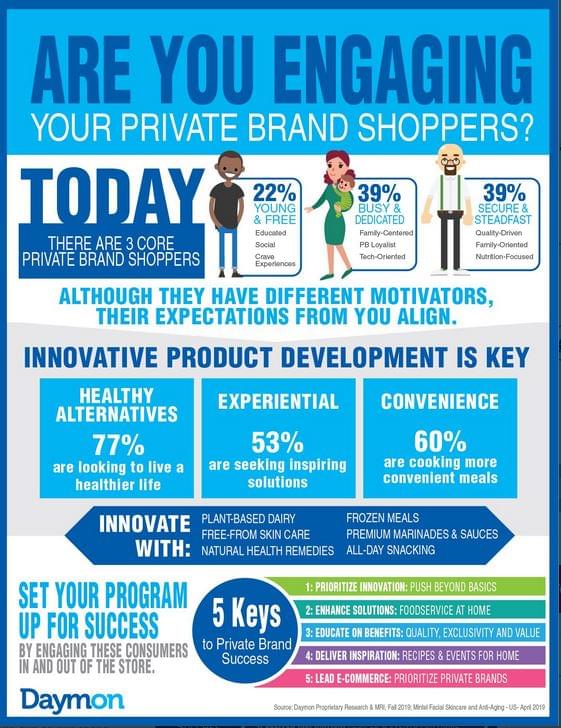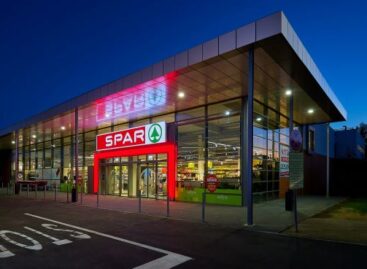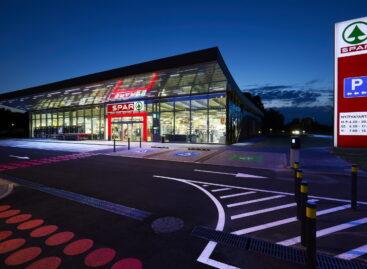Private Label 5 steps to new normal
In grocery retail, private labels are key to building loyalty. In the aftermath of a pandemic, when many are struggling financially, this area is given a new chance to grow. U.S. market researcher Daymon has developed 5 steps to success.

Although the restrictions on wearing the mask, social distancing, and the security of staying at home are easing, home based life style will go on for a long time. 60% of North Americans plan to eat more at home than before the pandemic and only 25% expect to eat out as frequently as they had before.
Altered brand and services
Out-of-stocks forced shoppers to change and try out new brands and products. 70% of shoppers reported purchasing a new or different brand than they had pre-COVID, with 30% reporting a positive experience after switching brands and intending to remain these purchasing shifts. 49% of consumers reporting they will shop online, versus 42% prior to crisis.
As foodservices became competitors in the grocery space, now grocery retailers can step up their game.
Reduced spending
One of the biggest global crises is threatening. A third of U.S. families are financially affected, either through job loss or pay cuts. This can reach 50% on average worldwide. During the 2008 crisis, 76% of private label categories increased. During COVID-19 so far private brand sales have increased 34%, outpacing the growth rate of brands. The values of own brands resonate with the way consumers look for alternative solutions. The private label can also be a decisive factor in the choice of store, as more than half of the customers stated in the pre-pandemic period. As the proportion of trials has increased and the economic environment is favorable, further development of the private brand market is expected in the new normal situation.
Prioritize innovation
The customer who has to save money is also interested in the novelties, making home meals healthier and more exciting. These innovations drive momentum through trial and loyalty. Therefore, retailers need to go further by developing their private branded products. For plant-based articles, healthy snacks remain the focus of interest. Brands continue to research and develop. Thus, retailers also need to stay afloat to differentiate themselves and have a competitive choice. In particular, the best-growing categories are home cooking, alternatives enriched with valuable ingredients and free of food allergens.

Enhance solutions
During the pandemic, home cooking was greatly aided by foodservices and speciality markets that already offered ingredients for restaurant quality meals. In addition to pre-assembled boxes containing a popular “meal kit” recipe and ingredients in the U.S., retailers can add a range of activities that allow for restaurant-quality home dining to a quasi-private label assortment available only at them. Prepared, cleaned, sliced, weighed ingredients and packaging make cooking easier. Chilled and frozen dishes, meats or meat substitutes, main courses, side dishes, desserts are all great terrain for private brand extension.
Working with nearby restaurants is also a good idea so that the customer can take home the dish prepared by the restaurant during the shopping.
It is worth offering your private brand selection on a stand-alone display, depending on the theme, in order to strengthen awareness and make shopping easier. The same should be published electronically, on a website or in an e-advertising newspaper.
Educate on benefits
Shopping can be the first way to return to normalcy, or at least to its appearance. Brands are pushing for promotions to regain their pre-pandemic positions. Private brands need to keep up and showcase the benefits they offer. First of all, consumers need to be assured of quality, as they may have so far chosen the private label only for financial reasons. This can increase repeat purchases and loyalty. It is necessary to highlight the specialties, the unique private brand products, which are decisive as destination determinants, store selection criteria, which are only available in the given chain in that form. These items should be constantly displayed both in the sales area and online.

We should not forget about the good price, as this is a constant advantage of private brand, but it is also worth reminding customers about it.
Deliver inspiration
No matter how stores and service providers reopen, the home-based lifestyle will remain. People are looking for ideas for home vacations, birthdays, friendly dinners, small group gatherings. You can compile recipes, tricks and dishes for these with the help of your private brands. It’s also worth scaling, making offers for beginners, advanced and professionals alike. Recipes, cooking classes, online, even in video format or live streaming. Events brought to life can also be shown as the family bakes and cooks together or spends their free time creatively.

Lead E-commerce
Shoppers are committed to online and are also enjoying the convenience of home delivery in the new standard. The online emergence of own brands has always been an area for improvement, often lost on digital interfaces.
It is time for merchants to put their own branded articles and programs in the forefront on online platforms as well. You need to dedicate your own, conspicuous and informative interface to your own-brand selection in online stores. It should also be displayed in an affiliated form, linked to dietary needs, lifestyle, recipes and other related areas. Lists, blogs, dietitians, chefs, celebrities can surround and storytelling these products.

Good naming and good searchability and easy finding are also very important. Just as merchandising drives customers to the point of sale, so digital merchandising needs to drive online shoppers. If you are looking for a category, private label offers should come first among the product options. In the same way, if a replacement product is to be offered, the first must be the private label alternative. During the online purchase, new, related private label product offers should be displayed continuously, based on the shopping cart or purchase history data.

To support the digital switchover, the use of private label products is also recommended, eg free delivery if the order contains a certain amount of private brand product, or in case of application usage offering a private label product as a gift.
By considering the 5 focus areas – Innovation, Extension, Education, Inspiration, E-commerce – listed, merchants can experience increased penetration and greater shopper loyalty.

Related news
Food industry investment boom possible: nearly 200 billion forints in support decided
🎧 Hallgasd a cikket: Lejátszás Szünet Folytatás Leállítás Nyelv: Auto…
Read more >Three SPAR stores across the country were renovated with a development worth nearly 2.3 billion forints
🎧 Hallgasd a cikket: Lejátszás Szünet Folytatás Leállítás Nyelv: Auto…
Read more >Related news
Nestlé to sell remaining ice-cream assets but commits to Froneri venture
🎧 Hallgasd a cikket: Lejátszás Szünet Folytatás Leállítás Nyelv: Auto…
Read more >








